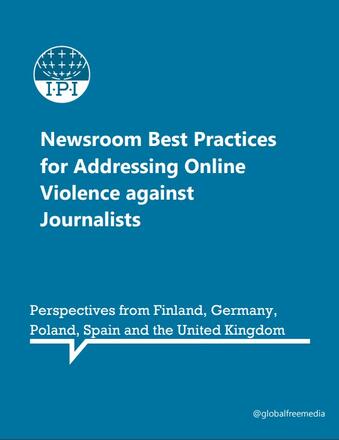The research conducted in 5 European countries (Finland, Germany, Poland, Spain, and the United Kingdom) includes interviews with editors, heads of audience, journalists, and media experts from civil society and academia, thus combining experience on the field with theory and analysis.
As female journalists are more often targeted in online attacks, with strategies often applied to journalists of foreign origins or belonging to ethnic or religious minorities, this study aims at analysing the context, the type of attack, the consequences, and the practices to prevent attacks and protect journalists in their activity.
Among the similarities found in the 5 countries, attacks can be divided into 5 categories: belittlement (letting women feel not qualified to do their work just because they are women), sexist insults, explicit and veiled threats of sexual violence or death, threats and insults to family and relatives, campaigns aiming to discredit journalists professionally (attacks usually accompanied for women by messages of macho nature and humiliation).
An interesting result in the chapter “solutions” is that most newsrooms, “while they acknowledge the highly problematic consequences of online harassment on their journalists, do not have sufficient resources to dedicate to a proper strategy of prevention and protection”.
The report underlines the importance of peer support, acknowledgement by the whole newsroom, holding regular meetings, reporting cases to the police, and access to legal defence: in this field of “solutions”, the situation highly differs from country to country.
After the analysis of each single country according to context, problem, consequences, and practices, the report lists some recommendations for media outlets and editors, for journalists and for States, about prevention of and reaction to online harassment.
Among these recommendations, many overlap involving several actors. For example, one of the recommendations addressed to media outlets, i.e. “making the abuse public”, can be seen as a strategy capable of involving all actors, thus able to include other suggestions, like “raise awareness among public officials”, which is one recommendation addressed to States.
Tags: Hate speech Finland Germany Poland Spain United Kingdom Freedom of expressionThe content of this article can be used according to the terms of Creative Commons: Attribution-NonCommercial 4.0 International (CC BY-NC 4.0) . To do so use the the wording "this article was originally published on the Resource Centre on Media Freedom in Europe" including a direct active link to the original article page.


